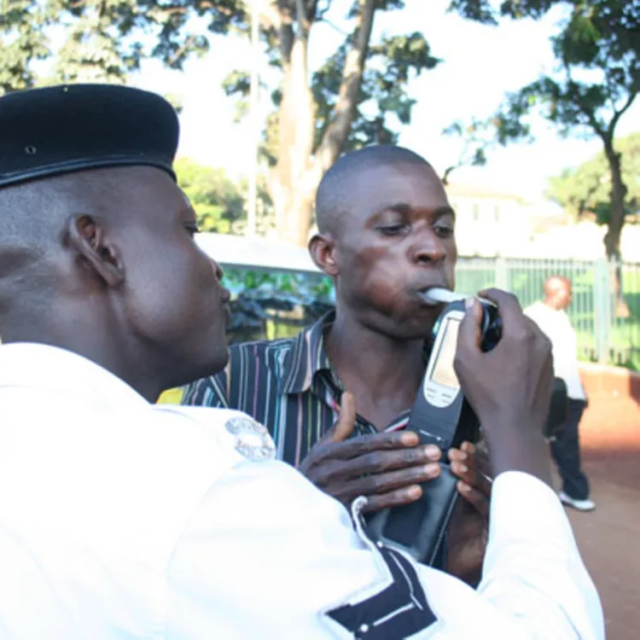
The Ministry of Health has okayed the reintroduction of breathalyzers on roads to curb drunk driving.
The breathalyzers were suspended in 2020 at the onset of the COVID-19 pandemic as this would pose risks of spread of the disease.
But in a statement, Dr Henry Mwebesa, the Director General of Health Services, said their evaluation shows that the chance of getting infected with the breathalyzers now is negligible following the significance decrease in cases.
The statement shows that the stand to reintroduce breathalyzers immediately was reached after discussion between the concerned ministries and agencies including the Uganda Police Force and the Ministry of Works and Transport.
According to the new guidelines, each client to be tested for whether they were driving under the influence of alcohol will use a separate, sealed and disposable tube to blow through the breathalyzer.
This move by government has however been long over-due as reports have pointed to drunk-driving as the leading cause of road-traffic crashes that have since increased and according to police records 40 percent are fatal meaning that lives are being unnecessary lost.
Previously, activists have pushed for a quick return of these devices on the road. In an earlier interview, Dr David Kalema, a Consultant at Safer Initiative Uganda, an entity created by the World Health Organisation to find solutions for alcohol-related harms had pointed out that the breathalyzers campaign which came to be popularly known as ‘Kawunyemu’ had helped reduce drunk-driving and it’s withdrawal was a major setback.
However, according to experts, alcohol and drug addiction are increasingly becoming a challenge that even as Butabika, the National Mental Hospital has raised an alarm that the dedicated addiction unit is perennially full, many times doubling its capacity.
Dr Hafisa Lukwata, the Assistant Commissioner in Charge of Mental Health in the Ministry of Health says the biggest challenge with alcohol abuse is the fact that the vice has been normalized in the community and therefore not recognised as a mental illness.
As a result, she says people are watched as they drink their way to addiction without cautioning them.
Kalema says this challenge of harmful use of alcohol can only be solved by law enforcement in terms of bans and imposing high taxes on drinking.






